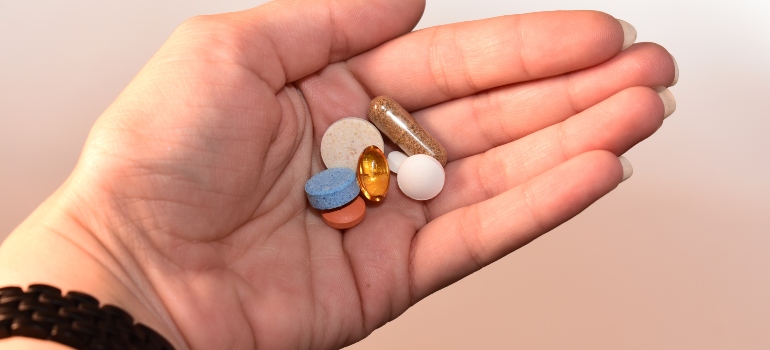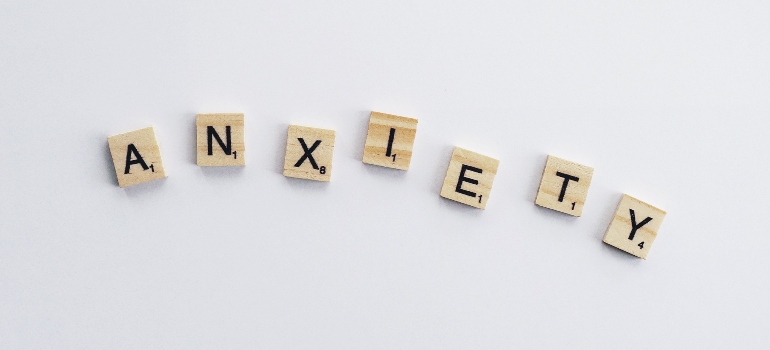LSD Withdrawal Symptoms and Recovery Process
Get Help Now
LSD, also known as acid, is a hallucinogenic drug that may cause addiction. When someone stops using LSD after a period of regular use, they may experience a range of withdrawal symptoms such as depression, anxiety, insomnia, and flashbacks. In more severe cases, users may experience paranoia, psychosis, and even suicidal thoughts. Managing LSD withdrawal symptoms and recovery process typically involves a combination of therapy at a detox clinic in Florida, medication, and lifestyle changes.
What is LSD?
LSD is a powerful hallucinogenic drug that alters the user’s perception of reality. It can cause users to experience vivid and intense hallucinations, as well as altered thoughts and emotions. While LSD is not physically addictive, it can cause psychological dependence, and regular use can lead to tolerance and withdrawal symptoms. LSD withdrawal symptoms can vary depending on the severity and duration of use. The symptoms can make it challenging to quit using LSD, and it is essential to seek professional help to manage them safely.

The recovery process for LSD addiction involves a combination of drug detox Florida, therapy, medication, and lifestyle changes.
It’s crucial to discuss LSD withdrawal symptoms and the recovery process to raise awareness about the risks of using LSD and the importance of seeking help if addiction or withdrawal symptoms occur. If you or someone you know is struggling with LSD addiction, seek professional help immediately to manage withdrawal symptoms safely and achieve long-term recovery.
How does LSD cause withdrawal?
LSD withdrawal occurs when an individual who has been regularly using LSD suddenly stops or reduces their use. Researchers believe that withdrawal symptoms are a result of the drug’s effect on the serotonin receptors in the brain. When someone takes LSD, the drug binds to these receptors and causes a surge of serotonin, which produces the drug’s hallucinogenic effects. Regular use allows the brain to adapt to these effects, leading to tolerance and dependence. When the user stops taking LSD, the brain struggles to readjust to the absence of serotonin, leading to withdrawal symptoms.
LSD withdrawal symptoms can vary in intensity and duration, depending on the person’s history of use, the amount of LSD taken, and other individual factors.

LSD withdrawal timeline
The first part of understanding LSD withdrawal symptoms and recovery process is to understand the LSD withdrawal timeline. LSD withdrawal symptoms can begin within a few hours to a few days after the last use of the drug. The duration and intensity of symptoms can vary depending on the individual’s history of use, the amount of LSD taken, and other factors. Generally, LSD withdrawal symptoms can last for several days to a few weeks.
First 24-72 Hours:
- Headaches
- Sweating
- Nausea
- Tremors
- Loss of appetite
- Insomnia
First Week:
- Depression
- Anxiety
- Irritability
- Mood swings
- Fatigue
- Muscle pain
- Disturbed sleep
Second Week:
- Psychological symptoms may persist or worsen
- Physical symptoms may start to subside
Third Week and Beyond:
- Psychological symptoms may continue to persist
- Physical symptoms may continue to improve
During the first few days of withdrawal, individuals may experience physical symptoms such as headaches, sweating, nausea, and tremors. Psychological symptoms can also occur, including depression, anxiety, irritability, and mood swings. These symptoms can be mild to moderate and typically peak within the first week of withdrawal. Therefore, you may want to enroll in a drug rehab Lantana program during this time. After the first week, physical symptoms may start to subside, but psychological symptoms may persist. The severity of symptoms can vary from person to person, and it’s crucial to seek professional help if they become overwhelming.
In some cases, symptoms of LSD withdrawal can last for several weeks, and in rare cases, they may persist for months. It’s essential to monitor the individual experiencing withdrawal symptoms closely and seek medical attention if symptoms persist or become severe.
Potential risks and dangers of LSD withdrawal
LSD withdrawal can be a challenging and potentially dangerous process for individuals who have been regularly using the drug. The risks and dangers associated with LSD withdrawal can vary depending on individual factors, including the amount and frequency of use and other underlying medical conditions. One of the most significant risks associated with LSD withdrawal is the potential for severe psychological symptoms such as aforementioned flashbacks, paranoia, and suicidal thoughts. These symptoms can be overwhelming and potentially life-threatening, leading to self-harm or harm to others. In severe cases, individuals may require medical intervention, including hospitalization, to manage these symptoms safely.
Another potential risk of LSD withdrawal is the risk of relapse. Without proper treatment and support, such as medical detox Florida programs, individuals may find it challenging to manage withdrawal symptoms and avoid the temptation to use LSD again. Relapse can lead to further harm and potentially fatal consequences, including overdose. In some cases, physical symptoms of LSD withdrawal, such as tremors and seizures, can also be dangerous and require medical intervention. These symptoms can lead to injury or other medical complications if not managed appropriately.

If you or someone you know is experiencing LSD withdrawal symptoms, it is extremely important to seek professional treatment. Treatment can help manage symptoms safely, reduce the risk of relapse, and provide support and guidance throughout the recovery process.
Individual factors that influence LSD withdrawal symptoms
LSD withdrawal symptoms can vary from person to person due to several factors, including the individual’s history of use, the amount and frequency of LSD taken, and other underlying medical conditions.
Another factor contributing to the variability of symptoms is individual differences in brain chemistry. Everyone’s brain chemistry is different, and LSD interacts with the brain’s serotonin receptors, producing the drug’s hallucinogenic effects. Individual differences in brain chemistry can affect the intensity and duration of withdrawal symptoms and may contribute to the variability of symptoms. It’s also essential to consider individual differences in the ability to cope with stress and manage withdrawal symptoms.
LSD recovery process
The recovery process for LSD withdrawal can be challenging and often requires professional help and support to manage symptoms safely and achieve long-term recovery.
The first step in the recovery process is seeking professional help from a healthcare provider or addiction specialist. A healthcare provider can assess the severity of withdrawal symptoms and develop an individualized treatment plan to manage symptoms safely. Furthermore, medical professionals are aware of questions you shouldn’t ask a recovering addict, something that can be a big problem for people that self-medicate.
Aside from treatment, it’s also essential to engage in healthy lifestyle changes to support recovery, such as regular exercise, healthy eating, and stress-management techniques. These lifestyle changes can help improve physical and mental well-being and reduce the severity of withdrawal symptoms. The recovery process for LSD withdrawal can take time and requires patience and perseverance. It’s crucial to remember that recovery is a journey, and setbacks can occur.

Treatment options
There are several treatment options available for individuals experiencing LSD withdrawal symptoms. Treatment options can vary depending on the severity of symptoms, individual needs, and other underlying medical conditions. Here are some common treatment options for LSD withdrawal:
- Medication: Medications such as benzodiazepines may be prescribed to manage symptoms such as anxiety and insomnia. Antidepressants may also be prescribed to manage depression and other psychological symptoms.
- Therapeutic interventions: Therapeutic interventions such as cognitive-behavioral therapy (CBT) can help address underlying psychological factors contributing to symptoms. CBT helps individuals develop coping strategies to manage symptoms and promote long-term recovery.
- Support groups: Support groups such as 12-step programs or group therapy can provide peer support and guidance throughout the recovery process. Support groups can be an effective way to connect with others who are experiencing similar challenges and receive guidance and encouragement from peers.
- Inpatient treatment: In severe cases, individuals may require hospitalization or inpatient treatment to manage withdrawal symptoms safely. Inpatient treatment can provide 24-hour medical monitoring and support to manage symptoms safely.
- Holistic treatments: Holistic treatments such as yoga, meditation, and acupuncture can help reduce stress and promote relaxation, improving physical and mental well-being and reducing the severity of withdrawal symptoms.
It’s essential to work closely with a healthcare provider or addiction specialist to develop an individualized treatment plan that meets individual needs and promotes long-term recovery. Treatment may include a combination of medication, therapy, and support groups, and it’s crucial to follow the treatment plan closely to manage symptoms safely and achieve long-term recovery.
Self-care
Self-care is an essential component of the recovery process for LSD withdrawal. Here are some tips for self-care during the recovery process:
- Practice healthy habits
- Seek support
- Practice stress-management techniques
- Avoid triggers
- Be patient
Celebrating milestones is also a great way to practice self-care. There are many reasons why you should celebrate sobriety milestones, after all. Recovery is a difficult journey and the person in recovery should get as much praise as possible.

Potential challenges and setbacks
Despite the benefits of self-care during recovery, challenges and setbacks may still occur. Here are some potential challenges and setbacks that may occur during the recovery process:
- Relapse
- Withdrawal symptoms
- Mental health issues
- Lack of support
Long-term effects of LSD use and withdrawal
LSD use and withdrawal can have long-term effects on brain function and mental health. Continued support and monitoring after recovery are essential to manage these effects safely and maintain long-term recovery.
Long-term effects of LSD use and withdrawal on brain function include changes in serotonin receptors, which can affect mood, cognition, and perception. Prolonged use of LSD can also cause structural changes in the brain, leading to impaired cognitive function, memory loss, and difficulty concentrating. These effects can persist even after recovery from LSD withdrawal. LSD use and withdrawal can also have long-term effects on mental health. Individuals with a history of LSD use may experience an increased risk of mental health disorders.
Seeking continued support and monitoring after recovery from LSD withdrawal to manage these long-term effects safely is absolutely critical. Continued support can include regular check-ins with a healthcare provider or addiction specialist, ongoing therapy, and support groups. Continued monitoring may include regular mental health screenings and assessments to monitor for potential long-term effects of LSD use and withdrawal.

What can you do?
LSD withdrawal can be a challenging and potentially dangerous process. Therefore, it is extremely important that you seek professional help and support to manage symptoms safely and achieve long-term recovery. LSD withdrawal symptoms can vary from person to person, and it’s essential to understand the physical and psychological symptoms and potential risks associated with LSD withdrawal. In other words, the recovery process for LSD withdrawal requires a comprehensive approach, including medication, therapy, and support groups. Self-care is also an essential component of the recovery process, and it’s crucial to engage in healthy habits, seek support, practice stress-management techniques, avoid triggers, and be patient.